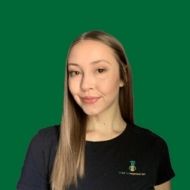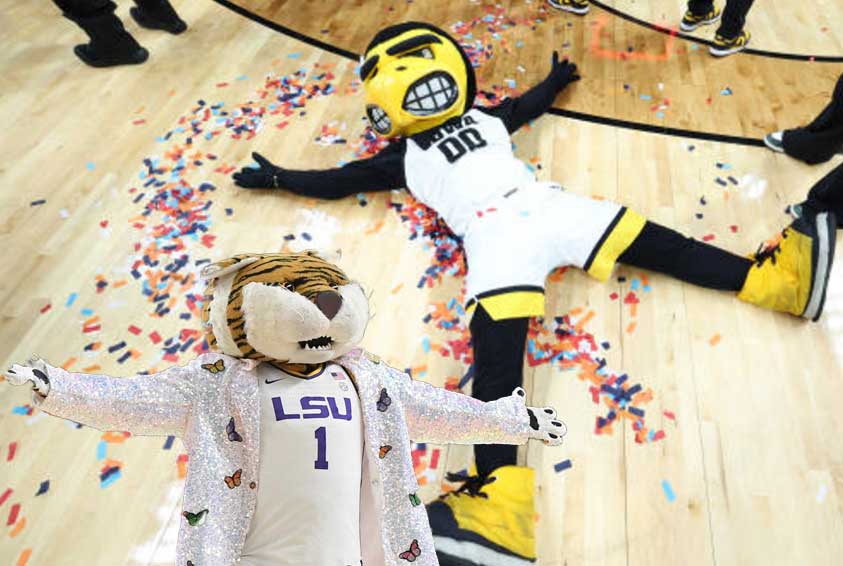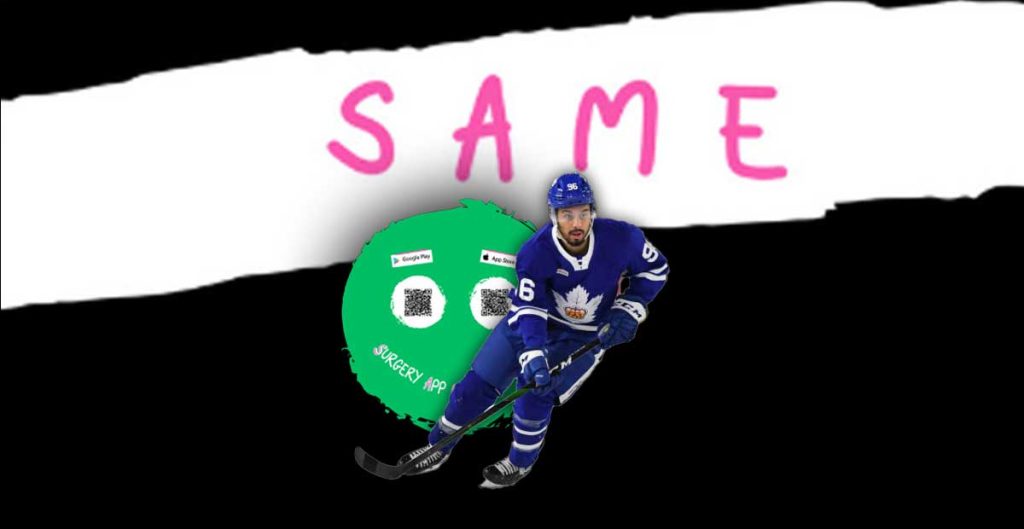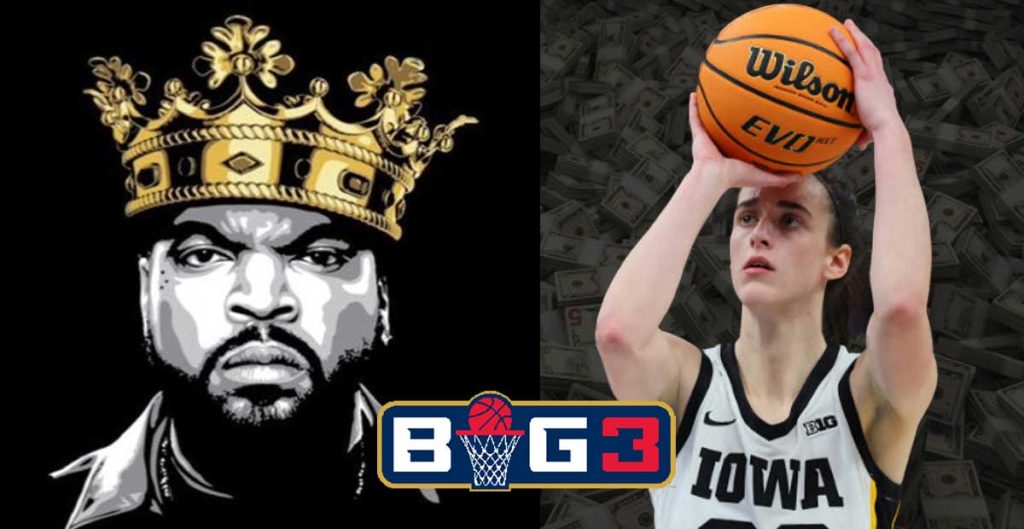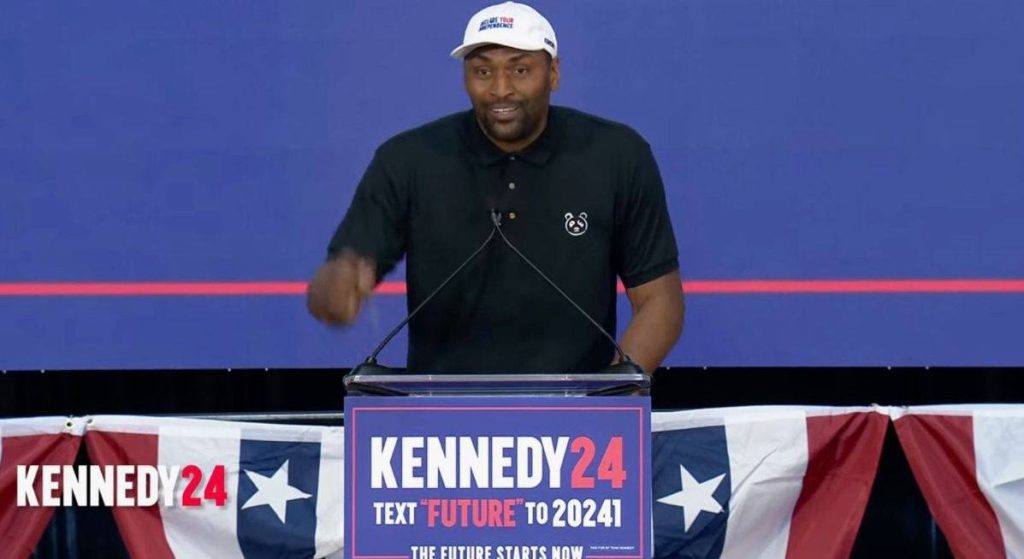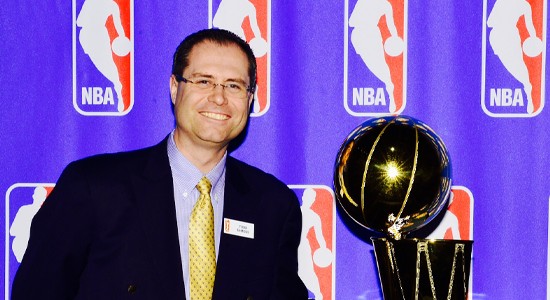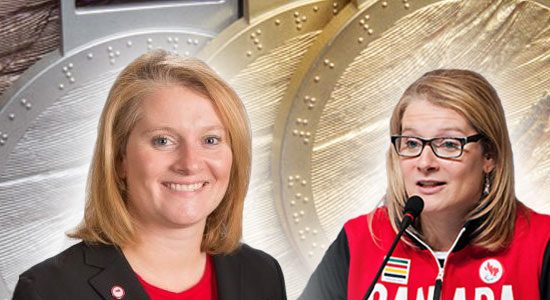
Canadian Paralympic Committee’s Executive Director Of Sport Catherine Gosselin-Despres Shows Why Strong Leadership Is Crucial
Catherine Gosselin-Despres | Executive Director of Sport | Canadian Paralympic Committee (CPC)

Sport is a global movement, and that through small or big travels in Canada or outside of Canada, being able to meet people from various backgrounds, cultures and nationalities is a huge gift.
Catherine Gosselin-Despres
Executive Director of Sport
Canadian Paralympic Committee (CPC)
Tell us about your role as the Executive Director of Sport of the Canadian Paralympic Committee (CPC).
As the ED, Sport at CPC I lead a team of 15 full-time staff and within sport we lead the areas of Games Operations and Delivery as well as Paralympic Pathways and Performance. In the day-to-day, it means we are planning and operationalizing for four sets of Games simultaneously (i.e. planning to bring the Canadian Paralympic Team to the Games).
We also work with 25 member national sport organizations ongoingly to optimally prepare the teams for the Games, including through a number of funding programs to support their performance in the lead-up to and at the Games, ensure they have the capacity and resources in place to identify new athletes and support more athletes through their pathway to high performance.
Further to this, in my role, I have the opportunity to work and collaborate with many other leaders of the Canadian sport system on various national initiatives.
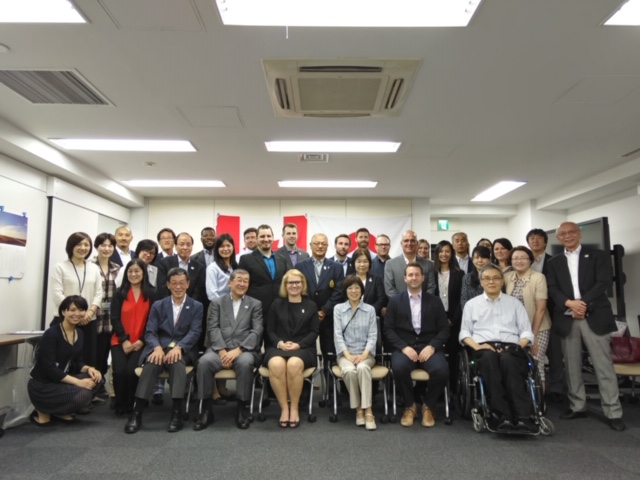
What does a typical day look like for you?
Pre COVID-19 at the office:
- I woke up at 5am every day, did a work-out and then got ready for work and normally I was at the office around 7am.
- From 7am to 8am with a coffee on hand, I would try to catch up on my emails from overnight and get ready for the day – so I would review my schedule and make sure I have all of what I need for all of the various meetings/calls I would have that day. I also usually use this time to do work or review work from my team as needed (It is quiet, so easier to work). I sometimes have calls with Europe at this time also since our governing body, IPC, is in Germany, and this is the easiest time to speak to them.
- 8am normally – my team starts arriving, so I try to go and say hello and chat to them. Sometimes I have team members who come in to chat as well in my office as they get their own coffees since my office is by the kitchen😊.
- Normally meetings or phone calls start around 9am and they are pretty much non-stop on most days until 3pm/3:30pm. My busiest days are always Tuesday, Wednesday, and Thursday, as there are many standing meetings – our SR Management Team, my sport leadership team meeting, all sport staff meeting, one on one with our CEO.
- I sometimes have mini-breaks, 30 min here and there, and try to have a snack. I usually bring my own lunch and take 30 min to eat – I usually eat at my desk since this is a time to browse and catch up on morning emails. I also sometimes go get lunch outside so I can go for a walk and I can take more like 45 min away from the desk (this would be more like a Monday/Friday).
- After 3pm/3:30pm – I catch up on afternoon emails, return calls, chat to my team members informally, see how their day was and troubleshoot anything they may need some quick input on. I also try to prep for the next day or catch up on work until around 5/5:30pm and then I go home. In the past year, I try not to work when I get home unless I have an emergency or some big deliverables coming up.
- When I get home, I try to go for a walk to clear my head.
During COVID-19:
- I wake up at 6am and work out. Have breakfast around 7:15am and am ready to go in front of my computer at around 7:30am.
- I use the beginning of the day to catch up on emails and prepare for the day. Meetings have been starting earlier than at the office since we communicate by Zoom or Microsoft Teams. Similar to when we are at the office, meetings often go until 3pm/3:30pm and sometimes later.
- I try to break a few times in the morning and afternoon, then I do house tasks, like empty the dishwasher, start the grocery list, order something online for the house or move laundry from the washer to dryer.
- I take 30 min to eat and I try to time it so I can eat with my husband (who is also working from home).
- At the end of the day, I go for a walk before dinner.
- I have worked in the evening a bit more since we are working from home but try not to and just do other things.
- The days have seemed longer in front of the computer since the work from home situation so I will take advantage of the good weather to spend more time outside.
When was the point you realized that you were meant to do this career? Take us through that realization.
This is hard, I have done competitive sports my whole life, so it was probably meant to be. I was involved in alpine skiing growing up, played school and club rugby, did competitive swimming and was a lifeguard, and worked as a tennis camp counsellor for many summers. All of this is probably why I thought I could work in the industry.
That said, I decided to go into kinesiology because I wanted to work in health and rehabilitation and in some ways, it was probably less about sport but more about wanting to encourage people to live an active life for all of the health benefits of physical activity and sports as we know it.
After my first year of university in Quebec City, I worked at a gym and was helping various clients with health concerns be active. And even though it was very good for them and rewarding to see the progress, I was not enjoying that area of specialization too much.
At the same time, I also started to have more classes on coaching, yearly planning and monitoring and training principles. So, I went to see the supervisor of the Human Performance area of the kinesiology department and he explained to me his specialization and this was a lot more related to what I enjoyed. I did complete my undergraduate degree in this specialized area.
But in my last year, I was able to go study abroad in Belgium, and there I had many classes in sport and club management and I quite enjoyed them and thought it could be a good area to work in Canada. I started to research this area and found that a university that offered a master’s degree in Sport Management. I got accepted and as part of an internship, started to work at a national sports organization and loved it.
I love watching speed events, alpine skiing, World Cups. My favourite skier was Herman Maier (pure technique and speed) and Bode Miller (always all over the map technically but got the results no matter how he skied). On the female side, I always liked Karen Lee Gartner – because she was Canadian and had some great WC and Olympic results.
I am a huge NCAA football fan, my dad always made me watch it. I have various teams I like in the various divisions but the main team I support is Notre Dame Fighting Irish. I am also an NFL fan and have to go with the New England Patriots, growing up in Quebec City, we always had the Boston channels so it was always the main game to watch. I have a couple of other teams I like following: New Orleans Saints and Baltimore Ravens.
I love watching rugby, rugby World Cup, rugby 7s, 6 Nations and even Top 14 League in France. And I love watching tennis Grand Slams – it does not matter which one of the tournaments, I usually cheer for the underdog players. I had two players back in the day that I loved – Patrick Rafter from Australia for his style of play, and Goran Ivanisevic from Croatia for his intensity and his aces. Now I have to go with Djokovic – but for sure support our Canadian players first.
I was a Quebec Nordiques fan, but hockey was never the same for me after they left the city. And I have to say that with the Raptors doing so well, I have taken pleasure in following them more closely.
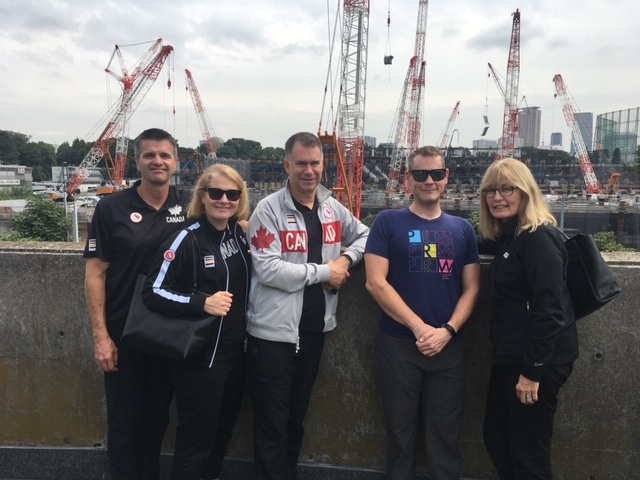
What is something people don’t realize about working in the sports industry?
First, it is a real blessing to be able to work in sport. It is still an industry that can grow so much in Canada and in the world, so it is motivating.
But, I would say to people that the sports industry is rewarding because if you do great work, there is the potential to do great things and shine as a leader quite fast.
There are also so many giving leaders in sports that are always willing to give opportunities, push you individually, and provide support along the way.
Finally, I would say the biggest piece is that sport is a global movement, and that through small or big travels in Canada or outside of Canada, being able to meet people from various backgrounds, cultures and nationalities is a huge gift.
What is the greatest reward that you have experienced working in the non-profit sector?
I would say helping and supporting individuals to achieve their goals, in our case coaches, athletes, and support team members.
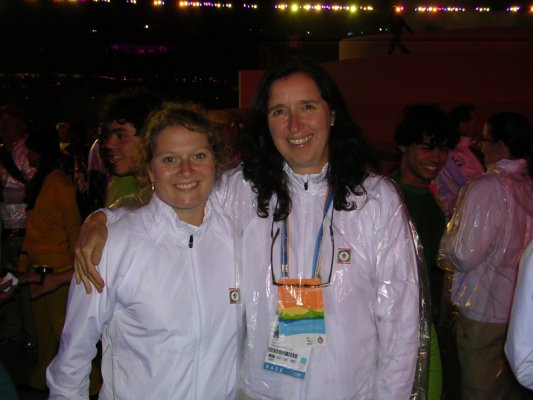
Would you say your path to your current position at the CPC was quite easy or rather challenging, and can you discuss why?
I would say challenging but extremely necessary. I believe working in at least one national sport organization (NSO) in Canada to come to a role like the one I have currently is necessary and important.
Our NSOs in Canada are the backbone of our Canadian sport system, they do it all from the clubs to the national teams. I worked in a couple of NSOs from 2002 to 2013 and gained a lot of experience in various roles and most times it was not easy at all.
As soon as you have passed your rookie years, you start to have a lot of responsibilities and accountabilities regardless of titles and many times with not enough resources and capacity in your organization to make it all work perfectly. So, you have to be resourceful, self-driven, creative, innovative and think outside of the box all of the time which was extremely motivating and highly rewarding for me.
I do feel it would be difficult to execute my current role if I had not had that NSO perspective and experience. Every time I make a decision, I think about them and the immense pressure they are under at all times and I reflect on my experience when I was there to try to make their lives easier and in the best interest of athletes, coaches and any of their support team members.
It does not always work perfectly, but I always have that intent top of mind. This is why we debrief, get feedback, and move on to adjust the plans as needed to meet the needs of our NSOs.
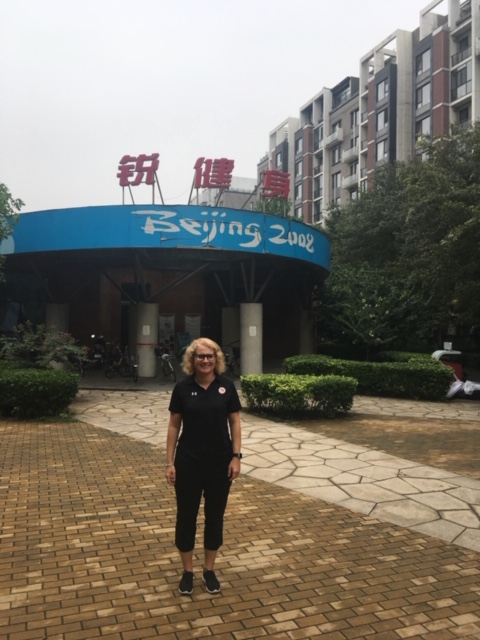
What makes a good leader for a major sports event?
Wow, this is a hard question. Having been to the Beijing and London Olympic Games with an NSO and being part of a multi-Games organization and now having completed five sets of Games in a leadership role I can completely say that leadership behaviours can be so different from one person to the other.
I would also say the attributes required in the planning phases are not always the same as at the events itself. The Games can make you or break you! And being prepared and organized pre-Games does not mean the Games will be easy. It is for sure a unique environment and very difficult to describe in a few sentences
But to answer your question I will focus on the attributes of a leader required during the Games:
- Be there for your staff team.
- Be open to feedback and implement it quickly.
- Be there for athletes, coaches and support team members when required.
- Be discrete (many situations involve confidential matters).
- Be culturally open and adapt to various cultures and ways of doing business.
- Be extremely focused and disciplined.
- Be able to deal with all kinds of pressure at any time of day/night.
- Be service and solution-oriented.
- Be able to adjust/adapt plans quickly.
- Stay positive in all kinds of situations & put on your smile.
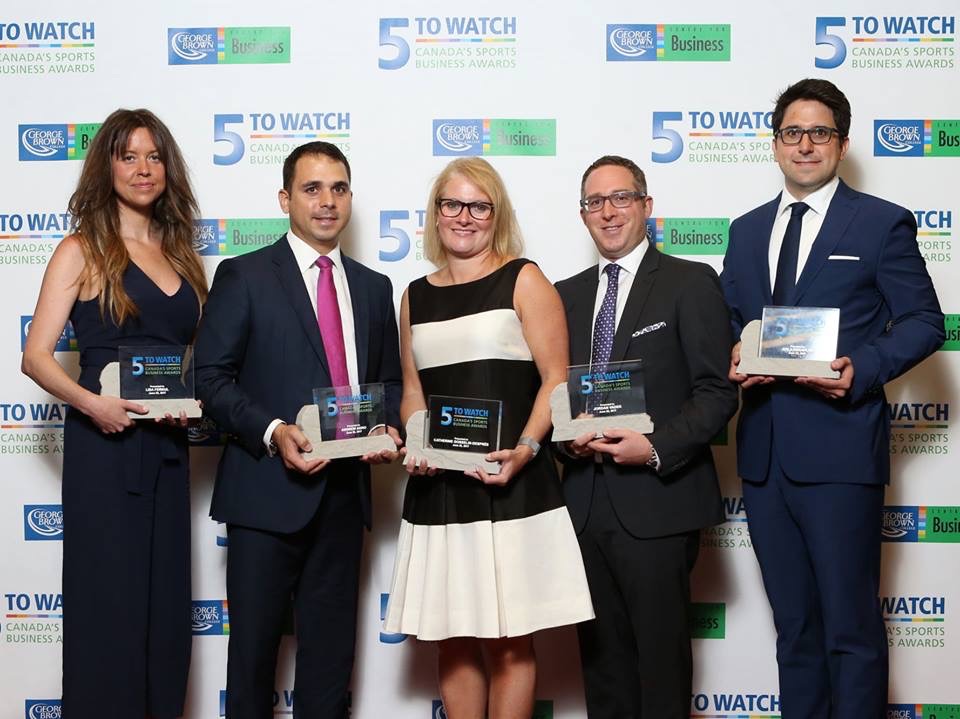
What advice would you give to recently graduated sport management students looking for their next opportunity and grow to be in a similar position to you one day?
- For your first few opportunities, do not be too picky, you will never get the perfect first opportunity. Just try to gain experience and get to improve your practical experience.
- Don’t expect a big salary at first and don’t compare yourself to your friends in other sectors, keep thinking about the experience you will gain and why you are there.
- Always stay humble and try to learn as much as you can from others, be curious.
- Work hard and do quality work.
- Be transparent and honest (good or bad).
- Take initiative and help others.
- Stay true to your values.
- Be confident but humble.
[get_current_post_author_pic_and_name]
As ED of Sport, Catherine’s role is incredibly important in bringing the Canadian Paralympic Team to Games. Throughout this interview, I learned how much of a leader she is. Having completed five sets of Games in her role, Catherine was able to successfully lead her team of 15 and adapt to the unique environment that Major Games are. The attributes Catherine shared about being a leader only further proves that she is willing to give back and help those in the sports industry who may need it. Catherine has already been named one to watch but we can’t wait to see what the future holds for her!
The Latest

